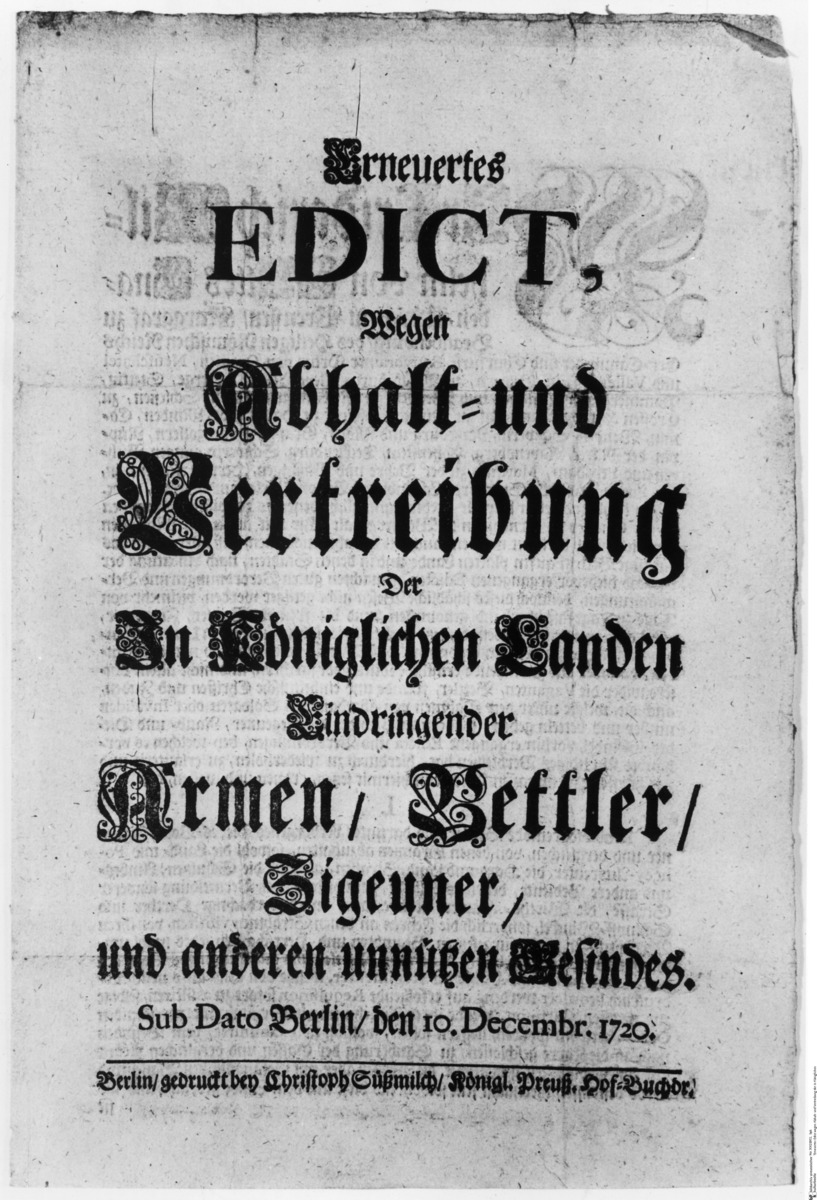Source

Source: bpk-Bildagentur, image number 30028952. For rights inquiries, please contact Art Resource at requests@artres.com (North America) or bpk-Bildagentur at kontakt@bpk-bildagentur.de (for all other countries).
In the context of mercantilist or cameralist policies that aimed to increase revenues, absolutist states asserted control over the social and economic lives of their subjects. Frequently, they published regulations formulated in the chamber or camera (i.e., the cabinet), which was usually presided over by the state’s ruler. This Prussian edit on “Keeping out and Banishing Useless ‘Riff-Raff’” dates from the rule of Frederick William I (the “Soldier King”) (r. 1713-40); it announces official measures to keep vagrancy and begging – and the resulting strains on the public purse – at a distance from the royal lands. The stigmatization of entire groups of socially underprivileged persons – in this case, paupers, beggars, and “gypsies” (Sinti and Roma) – suggests that social marginalization was perceived as inconsistent with the cameralist ethos of industriousness and subordination.

Source: bpk-Bildagentur, image number 30028952. For rights inquiries, please contact Art Resource at requests@artres.com (North America) or bpk-Bildagentur at kontakt@bpk-bildagentur.de (for all other countries).
bpk